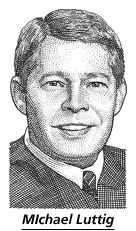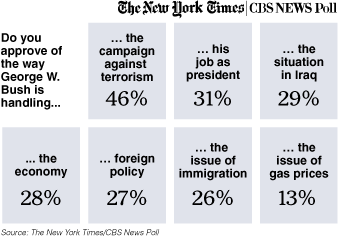Excerpts:
The evidence was strong enough long enough ago that the speaker should have believed Mr. Foley of his committee responsibilities contingent on a full investigation to learn what had taken place, whether any laws had been violated and what action, up to and including prosecution, were warranted by the facts. This never happened.
On Friday, Mr. Hastert dissembled, to put it charitably, before conceding that he, too, learned about the e-mail messages sometime earlier this year. Late yesterday afternoon, Mr. Hastert insisted that he learned of the most flagrant instant-message exchange from 2003 only last Friday, when it was reported by ABC News. This is irrelevant. The original e-mail messages were warning enough that a predator -- and, incredibly, the co-chairman of the House Caucus on Missing and Exploited Children -- could be prowling the halls of Congress. The matter wasn't pursued aggressively. It was barely pursued at all. Moreover, all available evidence suggests that the Republican leadership did not share anything related to this matter with any Democrat.
House Speaker Dennis Hastert must do the only right thing, and resign his speakership at once. Either he was grossly negligent for not taking the red flags fully into account and ordering a swift investigation, for not even remembering the order of events leading up to last week's revelations -- or he deliberately looked the other way in hopes that a brewing scandal would simply blow away. He gave phony answers Friday to the old and ever-relevant questions of what did he know and when did he know it? Mr. Hastert has forfeited the confidence of the public and his party, and he cannot preside over the necessary coming investigation, an investigation that must examine his own inept performance.
In addition, the finger-pointing is getting really, really, really nasty. Even by Republican standards:
Straining to hold the party together five weeks from Election Day amid unfolding revelations about the case, Mr. Hastert and his leadership team held a conference call with House Republicans on Monday night and heard blunt advice and criticism from participants who pressed for further action to reassure voters.
“This is a political problem, and we need to step up and do something dramatic,” Representative Ray LaHood of Illinois said afterward, adding that he had proposed abolishing the Congressional page program.
At the White House, Tony Snow, President Bush’s press secretary, initially characterized the scandal as “naughty e-mails,” drawing a blistering response from Democrats who said his words suggested that Republicans did not understand the gravity of the situation.
"There wasn't much there other than a friendly inquiry," Hastert said of the 2005 message from Foley, described as "sick" by the boy.
Hastert said he does not recall being told last spring by Rep. Tom Reynolds, the House GOP campaign chairman, about the questionable e-mail, but he doesn't dispute Reynolds' account.
"I don't think I went wrong at all," Reynolds said at a Monday evening news conference in his western New York district, surrounding himself with about 30 children and about as many parents. "I don't know what else I could have done."
Majority Leader John Boehner said the speaker had assured him months ago the matter had been taken care of. "It's in his corner. It's his responsibility,"
Boehner, R-Ohio, said in an interview on radio station WLW in Cincinnati.
Ugly.










